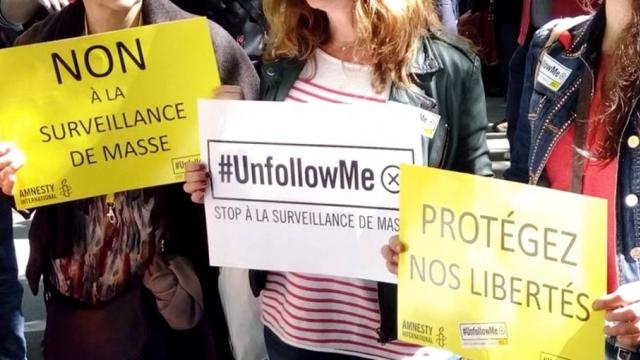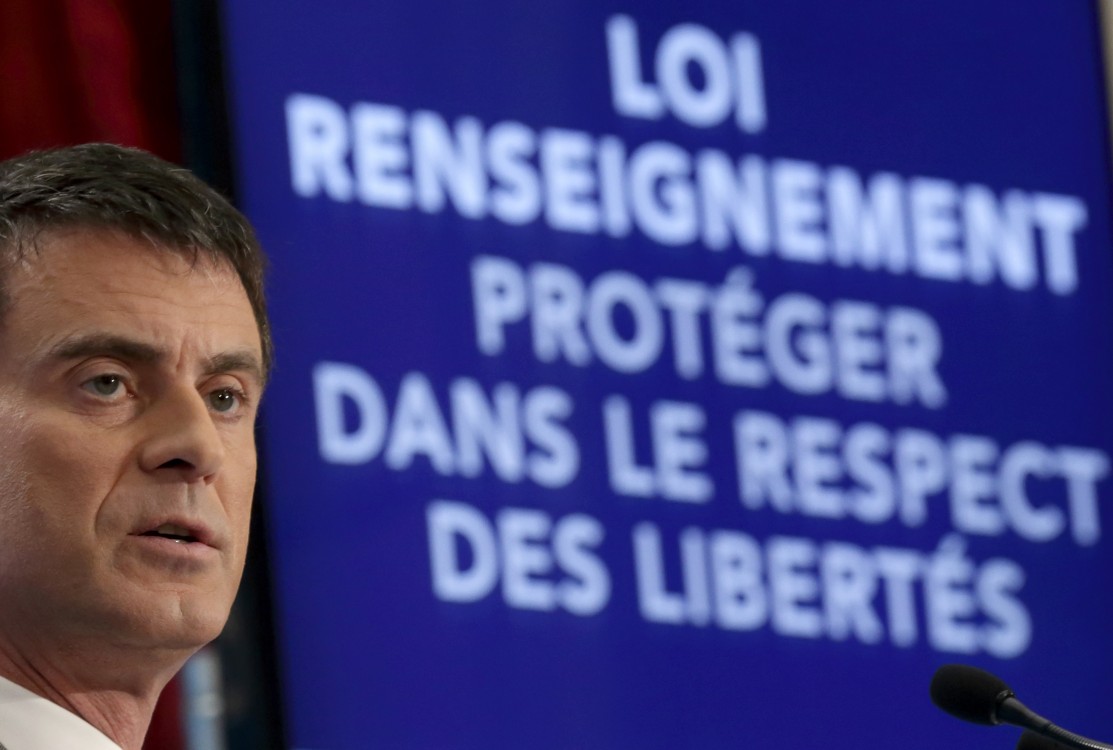
France's lower house of Parliament on Tuesday approved a bill that would legalize the broad surveillance of terrorism suspects and has drawn an outcry from advocates of civil liberties. Lawmakers from both the Socialist majority in Parliament and the conservative opposition supported the bill, which will now move to the Senate for further discussion.
Although it was proposed long before, the law is one of several government reforms in the wake of attacks that left 17 people dead and saw the capital gripped with fear for three days. The attackers, who pledged allegiance to Al-Qaeda in the Arabian Peninsula and the Islamic State in Iraq and the Levant, first hit the offices of French satirical magazine Charlie Hebdo, which had published provocative caricatures of the Prophet Muhammad.
The new law would permit intelligence services to place cameras and recording devices in suspects' homes and beacons on their cars without prior authorization from a judge. Instead, intelligence personnel would need to request authorization from an independent nine-person panel composed of magistrates, lawmakers and a communication expert — with exceptions in cases of special threats.
One of the most sensitive measures would force communication and Internet firms to allow intelligence services to install electronic lock boxes to record metadata from all Internet users in France. The metadata would then be subject to algorithmic analysis for potentially suspicious behavior.
The data would be anonymous, but intelligence agents could follow up with a request to the independent panel for deeper surveillance that could yield the identity of users. The panel and people who believe they are unfairly under surveillance could appeal to administrative judges.
Opponents say the bill legalizes highly intrusive surveillance methods without guarantees for individual freedom and privacy. A protest called by a group of privacy advocates, human rights groups and unions to denounce the bill gathered hundreds of people Monday near the National Assembly.
Reporters Without Borders said the bill "poses a grave new threat to the confidentiality of journalists' sources" and pointed out that it "contains no safeguards for protected professions, including journalists."
3 WAYS TO SHOW YOUR SUPPORT
- Log in to post comments












